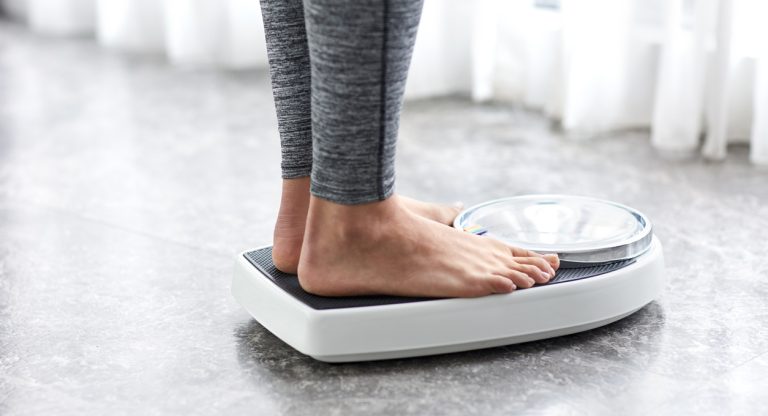You’re eating what you’ve always eaten. Your exercise routine hasn’t changed. Yet, you’re putting on weight. What gives?
If you’re in menopause, it’s likely hormonal changes are partly to blame. Unfortunately, the same factors that cause weight gain during menopause make it more challenging to shed pounds.
So, what’s a menopausal woman to do? Read on.
The Menopause-Weight Gain Connection
During menopause, your ovaries produce less estrogen. Estrogen is a hormone that plays a significant role in regulating your metabolism and body fat distribution. Less of it can mean that:
- Your metabolism slows down. Your body requires fewer calories than it once did. Consuming the same amount of food will lead to weight gain.
- Your body stores more fat, especially around the abdomen.
- Your appetite and cravings increase, making it hard to maintain a healthy, balanced diet.
Other Factors That Lead to Weight Gain During Menopause
Most women go through menopause between the ages of 45 and 55. That’s the same time of life when people tend to:
- Lose muscle mass — as much as 8% a year. Less muscle means a slower metabolism.
- Be less active than they used to be, which means they aren’t burning as many calories.
- Experience poor sleep, which can disrupt “hunger hormones” and lead to late-night snacking and other habits that cause weight gain.
Genetics can also contribute to weight gain issues as you get older.
Normal Weight Management Rules Still Apply
Abby Loftus-Smith, MD, a St. Elizabeth obstetrician-gynecologist, empathizes with women who are frustrated by weight gain during menopause. “You’re eating the same, you’re exercising the same, you’ve changed nothing — but your body has slowed down,” says Dr. Loftus-Smith, who sees patients at Women’s Health-Newport/Ft. Thomas. “This can be so frustrating! But, if you keep doing the same thing, you’ll keep gaining weight. You’ve got to change what you are doing.”
Losing weight during menopause is challenging but not complicated, she adds. It usually comes down to the principle of “calories in, calories out.” Dr. Loftus-Smith recommends the following:
- Focus on a balanced diet – Prioritize whole, nutrient-dense foods such as fruits, vegetables, lean proteins and whole grains. Protein is essential because it can help you build muscle, maintain muscle mass and limit muscle loss. Avoid processed and high-sugar foods.
- Get enough sleep – Aim for seven to nine hours of quality sleep per night.
- Manage stress – Chronic stress increases cortisol levels, which can lead to weight gain. Practice stress-reducing techniques like yoga, meditation or deep breathing.
- Stay active – Increase your heart rate with aerobic exercises (like walking or swimming). And focus on strength training to maintain muscle mass and boost your metabolism.
Should I Take Hormone Replacement Therapy for Weight Gain During Menopause?
Doctors typically prescribe hormone replacement therapy for menopause symptoms such as hot flashes and mood swings. The medicine may help with fat distribution and slightly reduce abdominal fat. But it won’t replace a healthy lifestyle. Talk to your doctor about the benefits and risks of hormone therapy to see if it’s right for you.
Trimming Down is Worth the Effort
The battle of the bulge doesn’t get easier as we age. But staying in the fight is worthwhile because extra pounds increase your risk of many chronic diseases. Excess abdominal fat is particularly concerning because it’s linked to a higher risk of diseases such as diabetes, heart disease and certain cancers.
If you’re struggling to lose weight or need support, talk to your doctor. You also can contact the St. Elizabeth Physicians Weight Management Center, which offers several weight-loss options.
Need a Women’s Health doctor? Search for one near you.

